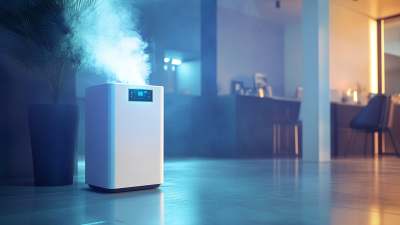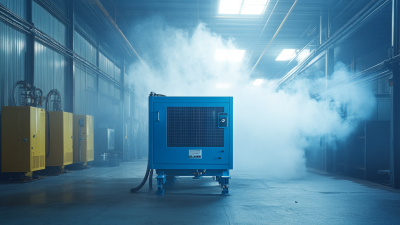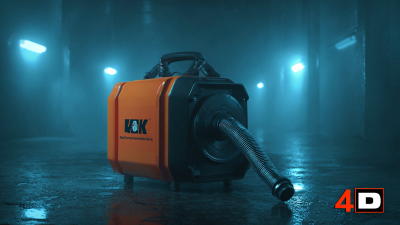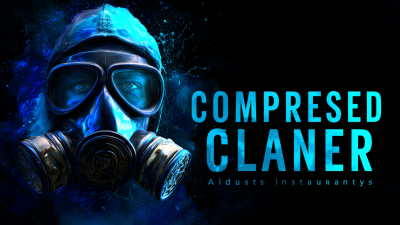
- sales@bjbod.com
- Mon - Sat at 7:00AM to 9:00PM

In today's industrial landscape, the demand for superior air quality has never been more critical. As industries increasingly rely on compressed air systems to operate essential machinery, the purity of this air is paramount to safeguarding equipment and ensuring optimal performance. Compressed Air Purifiers have emerged as an essential component in this equation, offering filtration solutions that achieve an impressive 99.99% purity level. According to a report by the International Journal of Industrial Science, nearly 70% of all industrial mishaps related to equipment failure can be traced back to contaminated compressed air, highlighting the crucial role that clean air plays in operational efficiency.
Compressed Air Purifiers not only enhance the lifespan of machinery but also improve overall product quality, thus mitigating the risk of costly downtime. The compressed air system often acts as the backbone of numerous processes across manufacturing, automotive, and food production sectors. With industries projected to lose approximately $20 billion annually due to downtime caused by equipment failure from air contaminants, investing in high-quality air purification is not just a necessity—it's a strategic imperative. As such, the implementation of advanced Compressed Air Purifiers can transform the operational landscape, ensuring both reliability and efficiency in industrial operations.
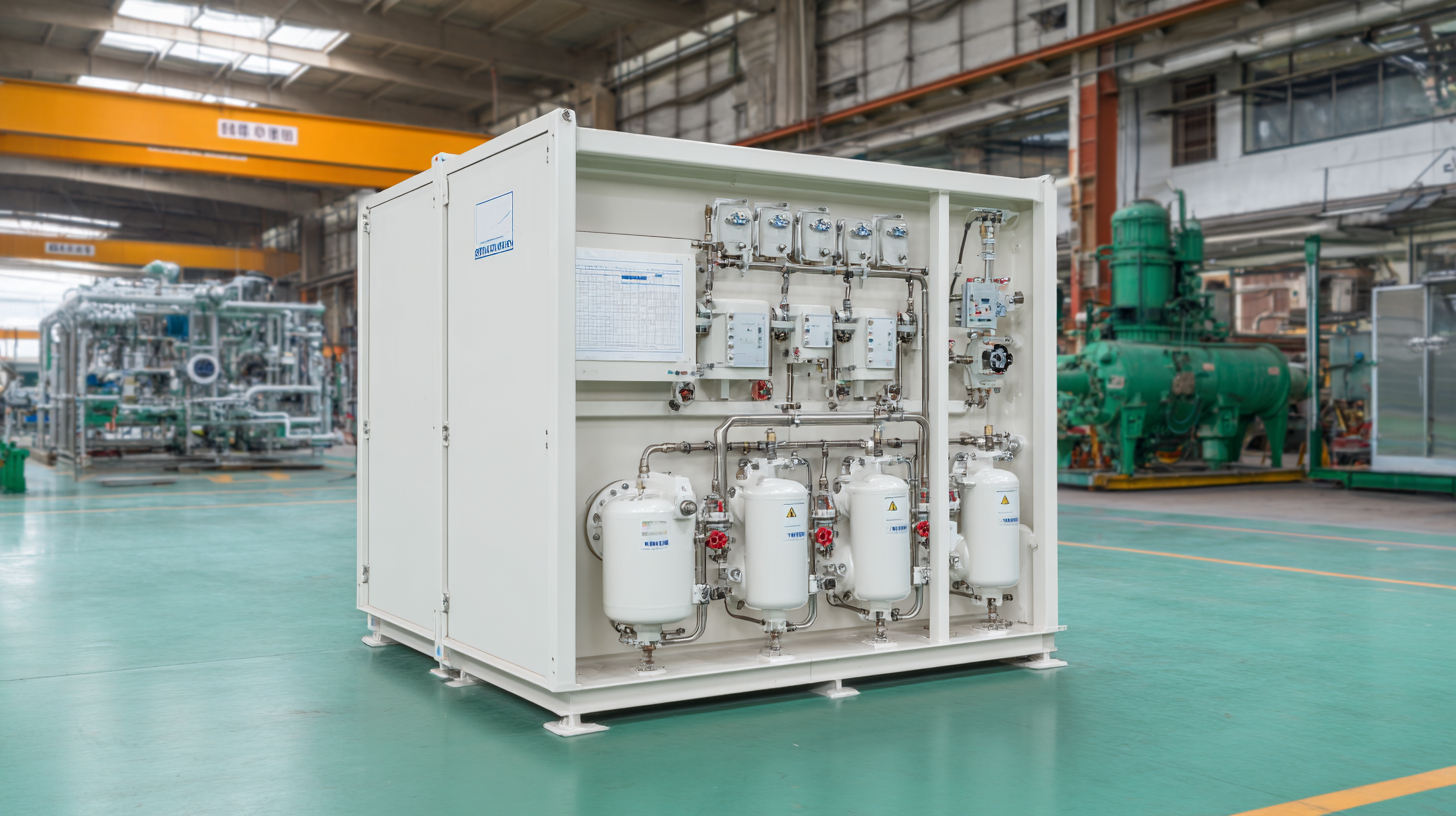
In industrial settings, air quality is paramount for optimizing operations and safeguarding equipment. Contaminants in compressed air, such as moisture, particulate matter, and oils, can lead to significant degradation of machinery and increase maintenance costs. According to a report from the Compressed Air and Gas Institute, improper air quality can result in equipment failure that costs industries an estimated $3 billion annually. This underscores the importance of investing in effective air purification systems to maintain high air purity levels.
Compressed air purifiers can achieve up to 99.99% purity, ensuring that the air used in critical processes is clean and contaminant-free. The Society for Manufacturing Engineers highlights that industries that implement rigorous air quality standards see a 15% increase in operational efficiency. This level of purity is vital in industries such as pharmaceuticals, food and beverage, and electronics manufacturing, where even minor impurities can cause product contamination or failures. Robust air quality management not only protects equipment but also enhances product integrity and compliance with regulatory standards, making compressed air purifiers essential for sustainable industrial operations.
| Dimension | Data |
|---|---|
| Purifier Efficiency (%) | 99.99 |
| Reduction of Contaminants | Particles, Oil, Water |
| Typical Particle Size Removal (microns) | 0.01 |
| Maintenance Frequency (months) | 6 |
| Average Lifespan (years) | 10 |
| Impact on Equipment Life (years) | 2-5 |
| Typical Industries | Manufacturing, Pharmaceuticals, Food & Beverages |
| Cost Savings Estimate per Year | $10,000 - $50,000 |
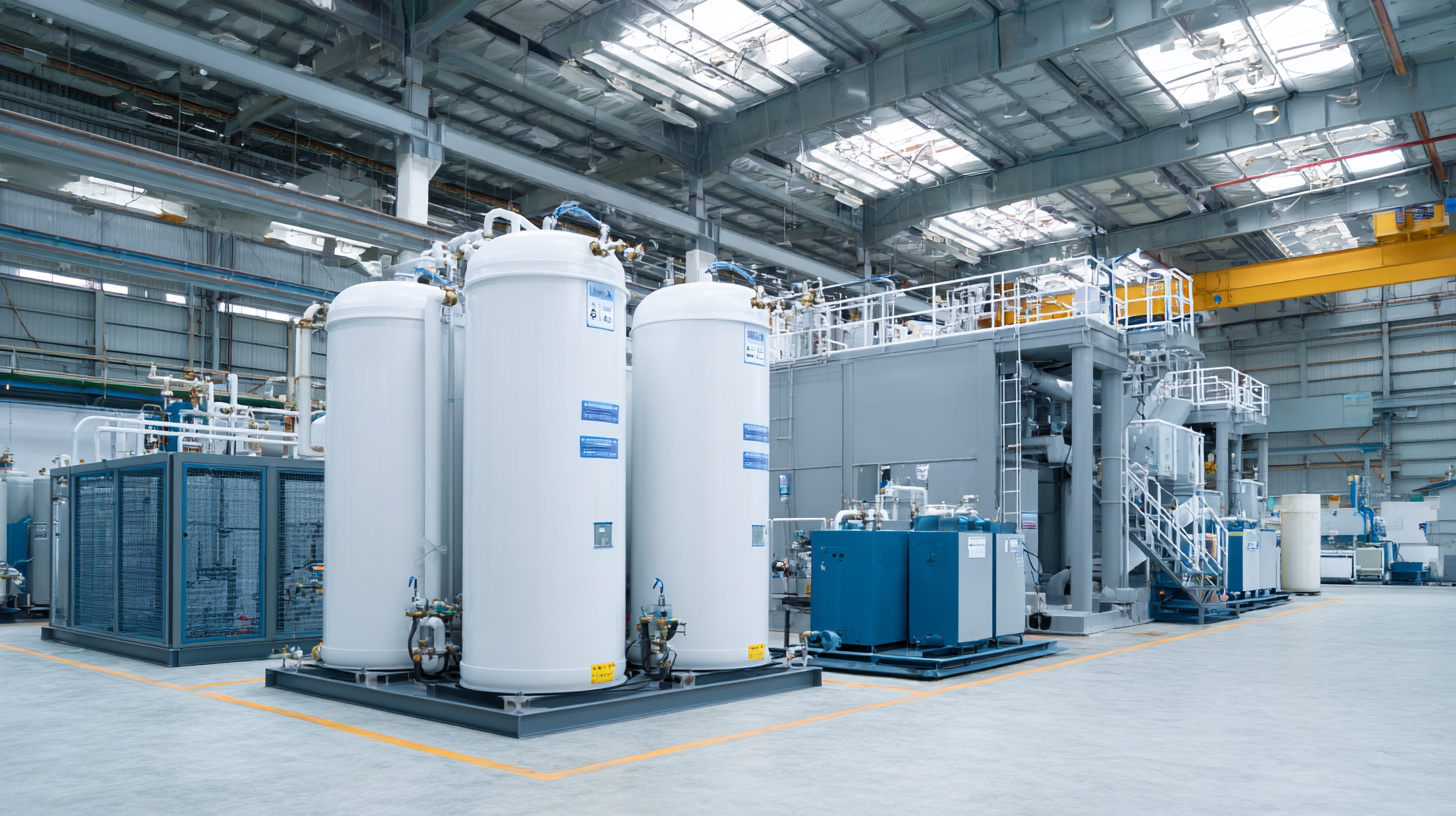 Compressed air purification technology plays a crucial role in ensuring the integrity of industrial operations. It involves a series of processes designed to remove contaminants such as water, oil, and particulate matter from compressed air systems. By employing advanced filtration and drying techniques, these systems can achieve a remarkable purity level of 99.99%. This high level of purity is essential not only for the proper functioning of machinery but also to enhance product quality and reduce the risk of costly downtime due to equipment failure.
Compressed air purification technology plays a crucial role in ensuring the integrity of industrial operations. It involves a series of processes designed to remove contaminants such as water, oil, and particulate matter from compressed air systems. By employing advanced filtration and drying techniques, these systems can achieve a remarkable purity level of 99.99%. This high level of purity is essential not only for the proper functioning of machinery but also to enhance product quality and reduce the risk of costly downtime due to equipment failure.
The core components of compressed air purification technology include filters, dryers, and moisture separators. Filters are designed to trap solid particles and oil aerosols, while dryers work to eliminate moisture that can lead to corrosion and rust within the air system. Additionally, the integration of monitoring and control systems enhances efficiency by providing real-time data on air quality, enabling operators to make informed decisions about maintenance and operational adjustments. By understanding and implementing these technologies, industries can protect their equipment, optimize performance, and sustain a competitive edge in a demanding market.
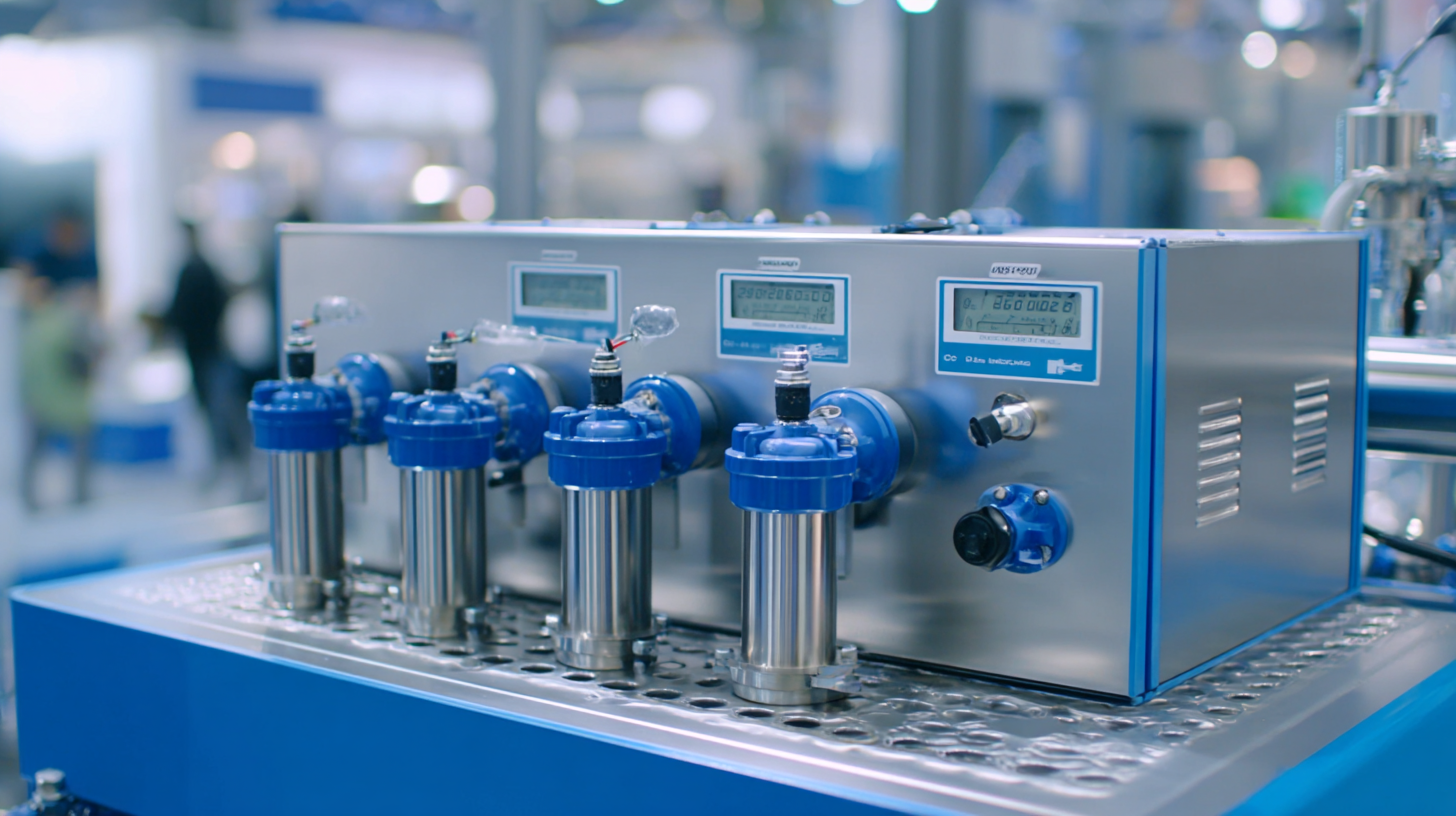 Compressed air purifiers play a crucial role in maintaining the integrity of industrial operations by ensuring a consistently high level of air purity. With a purification efficiency of 99.99%, these systems effectively remove contaminants such as moisture, dust, and oil, which can be detrimental to sensitive equipment. The advantages of this level of purity are manifold, particularly in environments where precision and reliability are paramount.
Compressed air purifiers play a crucial role in maintaining the integrity of industrial operations by ensuring a consistently high level of air purity. With a purification efficiency of 99.99%, these systems effectively remove contaminants such as moisture, dust, and oil, which can be detrimental to sensitive equipment. The advantages of this level of purity are manifold, particularly in environments where precision and reliability are paramount.
One of the key benefits of achieving 99.99% purity is enhanced equipment protection. Contaminants in compressed air systems can lead to premature wear and tear, resulting in costly downtime and repairs. By utilizing high-efficiency purifiers, industries can extend the lifespan of their machinery and reduce maintenance costs. Additionally, maintaining clean air ensures that production quality remains high, preventing product defects caused by impurities. This not only bolsters operational efficiency but also safeguards a company’s reputation for quality and reliability in the market.
Compressed air purifiers play a critical role in various industries, ensuring that equipment operates smoothly and efficiently while maintaining high levels of purity. Industries such as pharmaceuticals, food and beverage, electronics manufacturing, and automotive heavily rely on clean compressed air to avoid contamination that could lead to product spoilage, equipment damage, or compromised safety standards.
In the pharmaceutical sector, strict regulations necessitate the use of purified compressed air for processes like packaging and manufacturing. Similarly, food and beverage industries require immaculate air quality to prevent any microbial growth, safeguarding consumers' health. The electronics sector depends on ultra-clean air to protect sensitive components during production, while automotive industries utilize it for pneumatic tools that help build vehicles without contamination.
Tips: Regular maintenance of compressed air purifiers is essential to ensure their optimal performance. Always check for leaks and ensure filters are replaced according to the manufacturer’s recommendations. Implementing a routine air quality monitoring system can also help address potential issues before they escalate, providing a proactive approach to maintaining air purity.
The future of compressed air purification is set to evolve significantly by 2025, driven by advancements in technology and a growing emphasis on sustainability. As industries increasingly recognize the importance of maintaining air quality for their operations, innovations in filtration methods and materials are expected to dominate the market. This shift will not only enhance the efficiency of purification systems but also minimize energy consumption, aligning with global sustainability goals.
Moreover, the integration of smart technology into compressed air purification systems is anticipated to become mainstream. These systems will leverage data analytics and IoT connectivity to monitor air quality in real time, ensuring that equipment operates at optimal conditions while also alerting users to potential issues before they escalate. Such proactive monitoring will facilitate reduced downtime and lower maintenance costs, all while maintaining the necessary 99.99% purity required in many industrial applications. As we approach 2025, investing in advanced compressed air purification solutions will be essential for businesses aiming to optimize their operations while adhering to stricter environmental standards.
This chart illustrates the projected growth in the adoption of compressed air purifiers in industrial operations from 2023 to 2025, focusing on the expected percentage of facilities achieving 99.99% purity levels.

